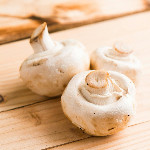The Origins and Varieties of Celery:
Celery has been cultivated for centuries and has its origins in the Mediterranean region. It belongs to the Apiaceae family, which includes other vegetables like carrots, parsley, and fennel. Today, there are several varieties of celery, including Pascal celery, which is the most common type found in grocery stores, as well as celeriac, a variety prized for its edible root bulb.
Nutritional Benefits of Celery:
Despite its low calorie count, celery is packed with nutrients and antioxidants. It's an excellent source of vitamin K, which is essential for blood clotting and bone health, as well as vitamin C, which boosts immune function and promotes skin health. Celery also contains fiber, which aids in digestion and promotes a feeling of fullness, making it a great snack for weight management. Additionally, celery is rich in antioxidants like apigenin and luteolin, which have anti-inflammatory and cancer-fighting properties.
Culinary Versatility:
Celery is incredibly versatile in the kitchen, lending its crisp texture and mild flavor to a wide range of dishes. From classic celery sticks with peanut butter to refreshing Waldorf salads and hearty vegetable soups, celery adds depth and complexity to both savory and sweet recipes. It can be eaten raw, cooked, or juiced, making it a favorite among chefs and home cooks alike. And let's not forget about the joy of biting into a crisp, chilled celery stick – a simple pleasure that never fails to satisfy.
Celery in Sustainable Agriculture:
As consumers become more conscious of the environmental impact of food production, sustainable agriculture practices have become increasingly important in the celery industry. Many celery growers are adopting eco-friendly farming methods, such as organic farming, crop rotation, and water-efficient irrigation, to minimize their environmental footprint. By supporting sustainable celery producers, consumers can enjoy their favorite vegetable while also supporting the health of the planet.
Celery in Culture and Tradition:
Celery holds a special place in many cultures and culinary traditions around the world. In Western cuisine, celery is a staple ingredient in dishes like chicken noodle soup, stuffing, and potato salad. In Asian cuisine, celery is often used in stir-fries, noodle dishes, and soups. Celery is also a symbol of health and vitality in some cultures, often eaten during detox cleanses and weight loss programs.
Conclusion:
From its ancient origins to its modern-day popularity, celery continues to be a beloved vegetable enjoyed by people everywhere. With its crisp texture, mild flavor, and impressive nutritional profile, celery is a versatile and nutritious addition to any diet. So the next time you're planning a meal, be sure to include plenty of celery – your taste buds and your body will thank you for it.











